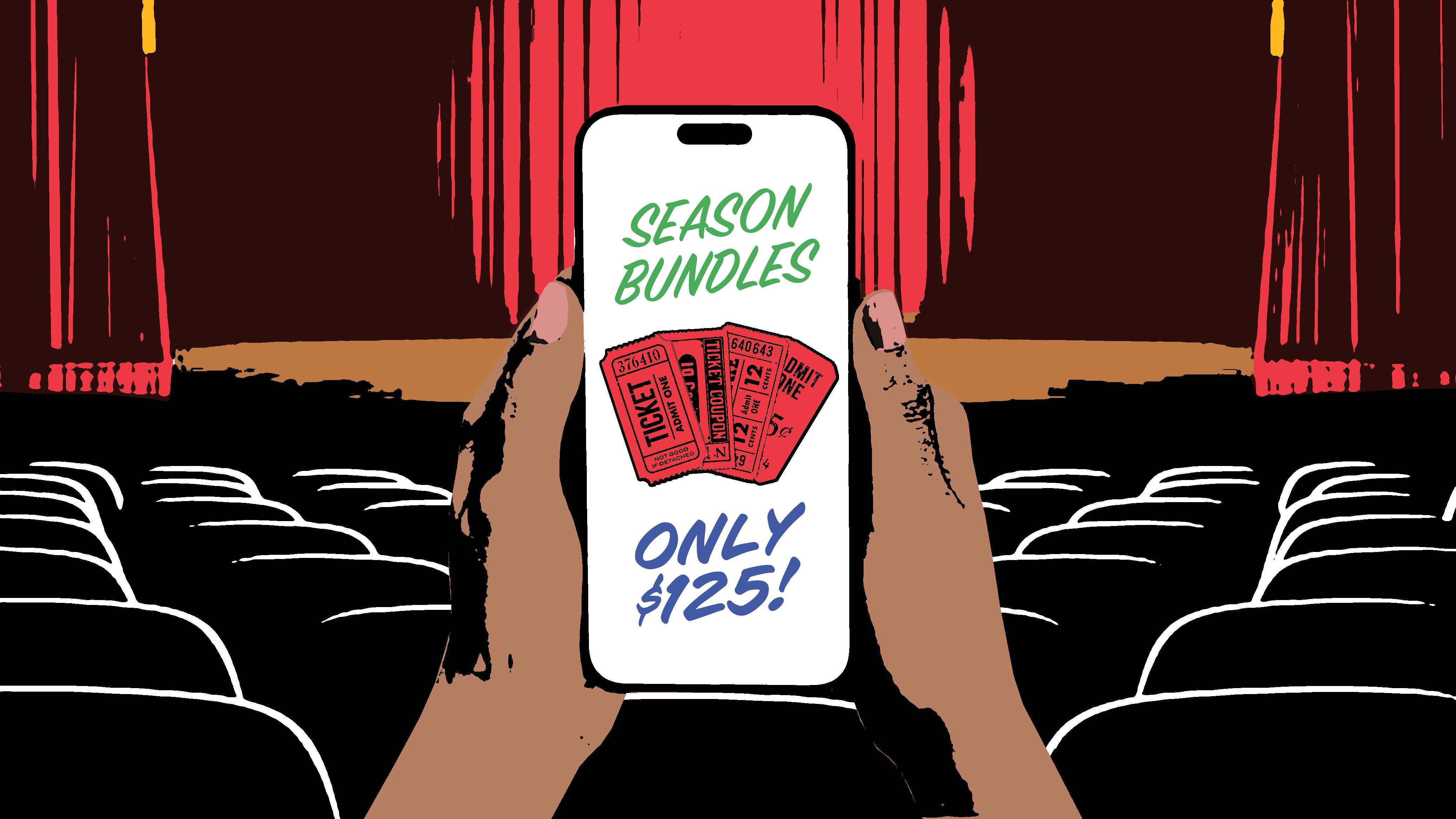In a world of uncertainty, Terri Redwine knows one thing for sure: She will have her front-row seats for a Sunday matinee of every production at Portland Center Stage at The Armory. Ditto weekend matinee seats for every Broadway in Portland show at the Keller Auditorium. She insists on the afternoon shows because she’s 65 and driving at night is getting tricky. How long has she had this sweet setup?
“So long, hon, I can’t even remember,” she says. “I love anything live theater. I’m addicted to it, is what I am.”
The benefits of having subscribers like Redwine to local arts organizations are many. Theaters get an influx of cash before the season even begins and can better plan marketing and advertising budgets. Subscribers get discounts for buying in bulk and the peace of mind of knowing they won’t miss a hot show.
But Redwine’s system—paying up front for multiple full-season subscriptions in town every year—is becoming increasingly rare.
Especially for young audiences, the idea of Portland Center Stage asking them to commit to a performance on a random Sunday at 2 pm more than a year from now is bonkers. They’re used to buying their Blazer tickets on the Ticketmaster app as they are physically walking into Moda Center. So do they want to spend $68.25 to make sure they’ll be in seating Area 1 for the production of Fat Ham, James Ijames’ Pulitzer Prize-winning reimagining of Hamlet? Sounds like a cool show, but put them down as a maybe.
“One of the constant refrains we’re hearing post-pandemic is people’s desire to consider their commitments less than a year in advance,” PCS marketing director Katie Watkins says. “Maybe they don’t want to be planning things in June 2026.”
Audiences are changing, and performing arts organizations are scrambling to change with them. At PCS, for example, subscription sales have been falling by 18% every year since 2021. But as subscriptions plummeted, single-ticket sales were up by the same percentage last year. Like many theater companies, PCS is pivoting by pushing its flexible subscription packages, which are less expensive and include fewer shows, while brainstorming bigger changes for the future.
The company just got a $25,000 grant from the Sheri and Les Biller Family Foundation to research new ticketing models. Another grant recipient: Portland Playhouse, which is piloting a “social prescriptions” program in which mental health care providers prescribe clients live theater for healing. Portland Playhouse has soft-launched the program with 50 Cascadia Health clients this season and plans to expand to 100 next year.
PCS, along with many other companies in town, recently announced its 2025–26 season at the end of winter and is in the midst of its subscription renewal push. Single-ticket sales don’t open until August, but the company doesn’t expect a deluge of orders right away. Despite the 18% increase in single-ticket sales, those orders don’t pick up until a scant week or two before productions open, leading to some nervous days in the front office.
Watkins and other arts professionals interviewed by WW trace this consumer change to the pandemic, when everything shut down with little notice. Add the uncertainty of federal funding, such as possible cuts to the National Endowment for the Arts and a stock market graph that looks like an amusement park ride, and it makes sense that patrons might be clutching their purse strings a little tighter than normal.
“People don’t want to be pinned down,” says Christy McGrew, Portland Opera’s senior manager of sales and audience development. “If you don’t know what’s going to happen tomorrow, how the hell are you supposed to know what’s going to happen six months from now? And I think that’s fair.”
Subscribers still make up 30% of Portland Opera’s audience, McGrew says, but patrons are looking at flexible packages more and more rather than what’s known in the industry as a traditional package. For a flexible package, customers can choose anywhere from three to seven productions and can also mix up the night they attend and their seat choice.
Similarly, Oregon Symphony has a “choose your own” package in which patrons choose a minimum of three concerts, but they can mix and match classical, pops, films and more. Keeping those subscribers—whether it’s a “choose your own” flexible package or a straight-up,18-concert classical series—is critical for the symphony, president and CEO Isaac Thompson says. Ticket sales cover only a small percentage of the cost to facilitate a major American orchestra with 77 full-time musicians, Thompson says. Much of the rest comes from individual contributions.
“Subscribers equals loyalty equals donations,” he says.
Oregon Ballet Theatre is one of the few local arts organizations that says its subscription packages have held relatively steady, according to OBT spokeswoman Stephanie Chadwick. The company has had at least one subscription surprise lately, though. In December, an influencer and dancer named Sam Edwards posted a video on TikTok called “I got Nutcracker tickets for only $25 each and here’s how!”
Edwards had taken advantage of OBT’s Pointe Pass, a subscription-type package in which ballet fans 21-35 can purchase five ticket credits for $125—essentially five $25 tickets to use for any show in any combination. After about the seventh call from someone asking about the Pointe Pass, the box office receptionist finally asked what on earth was going on and heard about the TikTok.
“Our box office phone was blowing up, and everyone was looking at me like, what did you do?”
